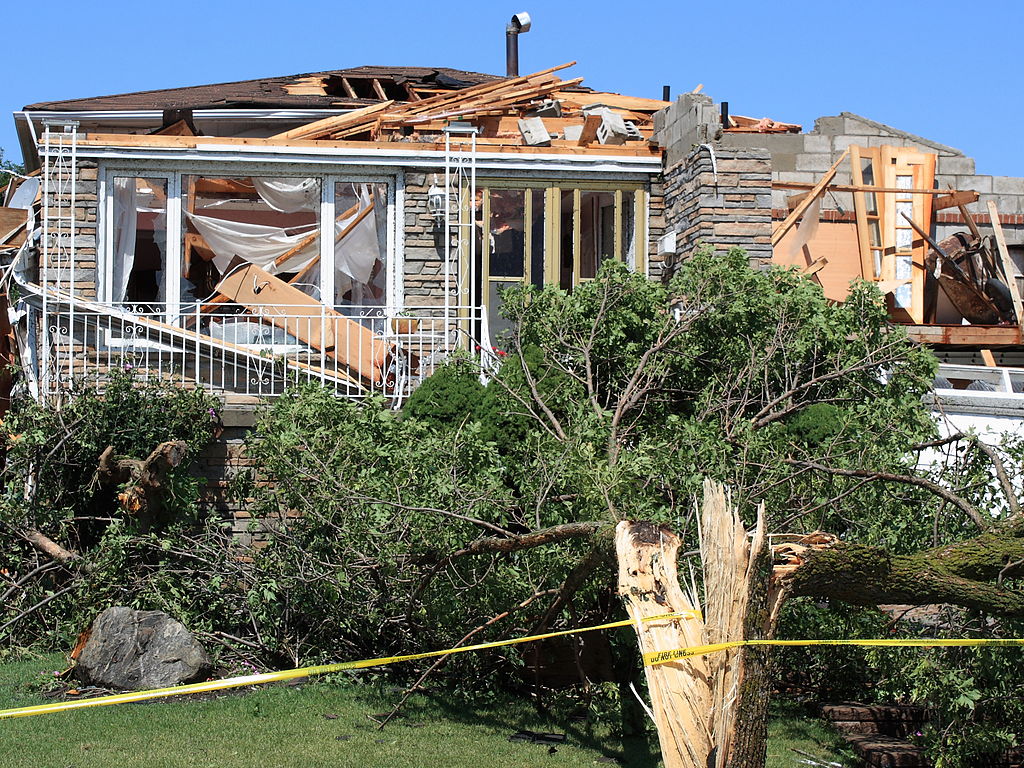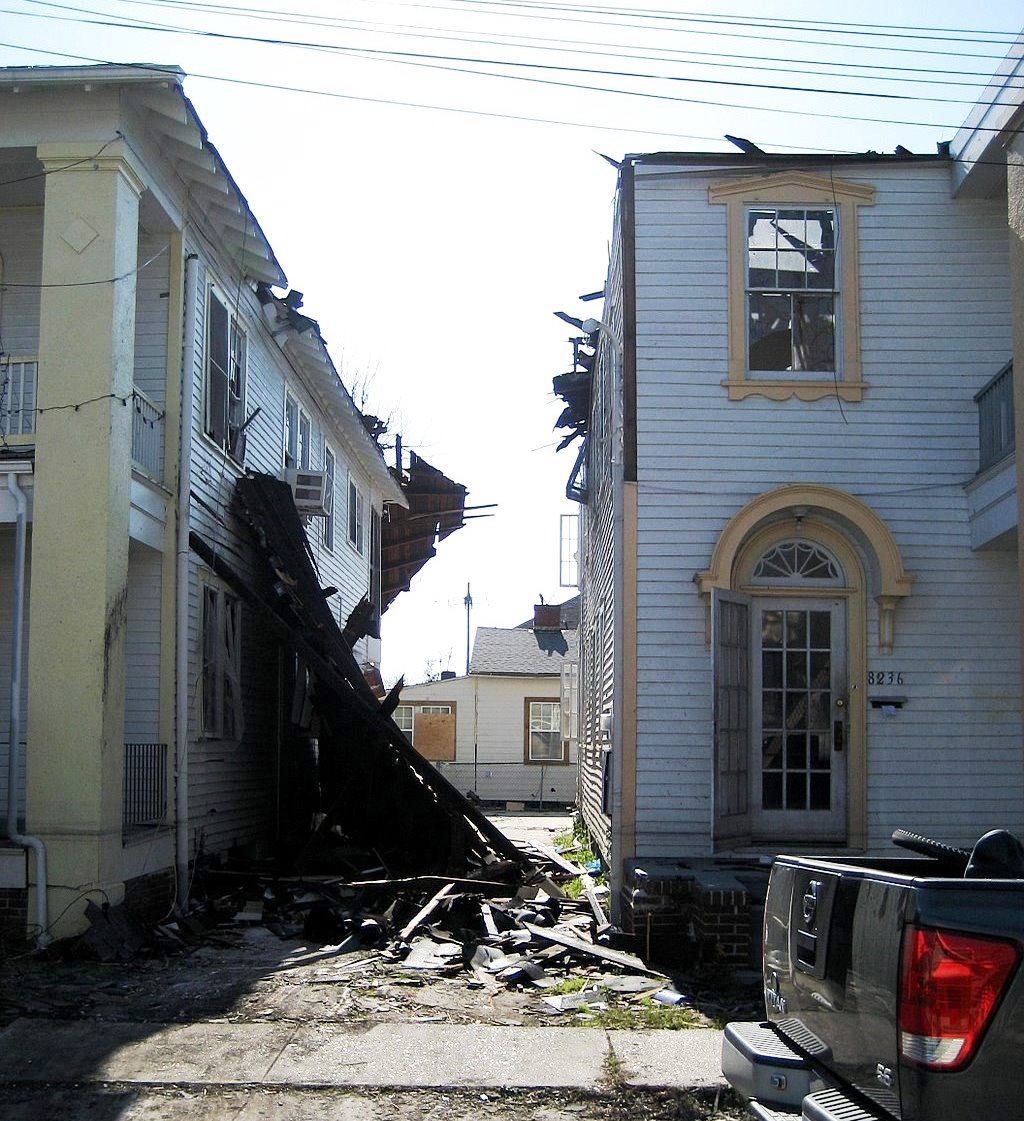Roof Blown Off!
 The headlines are impressive: “Nor’easter literally blew the roof off!” “86-year-old had his roof blown off!” “Roof blown off Kansas school!” When accompanied by video, they’re even more impressive – downright frightening, in fact. You’re left wondering if this could happen to you … and how to prevent it.
The headlines are impressive: “Nor’easter literally blew the roof off!” “86-year-old had his roof blown off!” “Roof blown off Kansas school!” When accompanied by video, they’re even more impressive – downright frightening, in fact. You’re left wondering if this could happen to you … and how to prevent it.
Let’s find out what happens when a roof is blown off.
What Happens When a Roof Blows Off
During a severe weather event, such as a tornado, thunderstorm, or hurricane, high velocity winds cause shifts in air pressure, creating suction which can literally “raise the roof.” Shingles or even the entire roof can be blown off as if lifted by giant hands. Although there have been cases where the roofing is temporarily lifted and then dropped right back down onto the house, usually it ends up being deposited nearby, potentially damaging vehicles, landscaping and more, as well as destroying the roofing material itself.
Repair Your Roof
If the wind has contented itself with taking off just a few shingles, consider yourself lucky. A small shingle replacement is usually a simple and relatively inexpensive roof repair. Don’t delay, though, because even a small hole in the roof will lead to leakage and worse damage over time.
In the case of larger-scale damage (more than 30 percent of the shingles are cracked or blown off), you’ll have to weigh whether roof repair or replacement is the better option. The age of your roof could be the deciding factor – lifespan depends on the roofing material.
If your whole roof has been blown off, you will need to evacuate your home and find a qualified local roofer for immediate emergency roof repair. A missing roof will not only expose your furnishings to the elements but also weaken the structure of the entire building.
Roofing Disaster Prevention
Maintain your roof. Inspecting the roof regularly for cracked, worn, curled, or missing shingles and signs of water damage will help reduce the risk of having your roof blown off. Replace the roof as it approaches the maximum lifespan for your particular type of roofing material. Especially if you live in an area prone to severe winds, don’t push your luck by trying to get a few more years out of the roof.
Check that your roof is installed according to code or better. This is particularly important with an older roof because: 1) if previous homeowners installed it, you may not know whether they hired a reliable, licensed roofer and 2) local building codes change over time, and may be upgraded after a disaster. For example, Florida's post-Hurricane Matthew building code specifies closer spacing of roofing nails to best keep roofs in place during severe weather.
Seal your roof properly. Make sure that the edges of your roof are properly sealed with a roofing cement to prevent gale-force winds from penetrating underneath and blowing off your shingles. Seal the decking, as well.
Install windproof sheathing. When you have a new roof installed, be sure that the sheathing used is windproof. This sheathing is a “second line of defense,” which will protect against heavy winds even if the shingles themselves are blown away.
Add roof clips. These galvanized steel clips will attach your roof to the rafters or trusses of your house to protect it from being blown off in wild weather. The clips come in uplift protection strengths ranging from 300-1500 pounds; choose which to install according to the hurricane danger in your locality.
Rope your roof down. If a hurricane is predicted to hit your home, anchor your roof even more tightly in place. Hold your roof down with a system of ropes, attached at both ends to concrete blocks on the ground.
Do NOT open windows when a major windstorm is expected. Snopes has debunked the popular misconception that doing so will help equalize the indoor and outdoor pressure to prevent your roof blowing off. In fact, opening windows before a storm only exposes your home to more damage, from both wind and rain.
Laura Firszt writes for networx.com.
Looking for a Pro? Call us (866) 441-6648

Roofing Average Costs
Roofers Experiences

Garage Roof Leak Repair Means No More Dripping Onto My Drywall

Roof Repair That Keeps The Snow Out Of Our Attic




